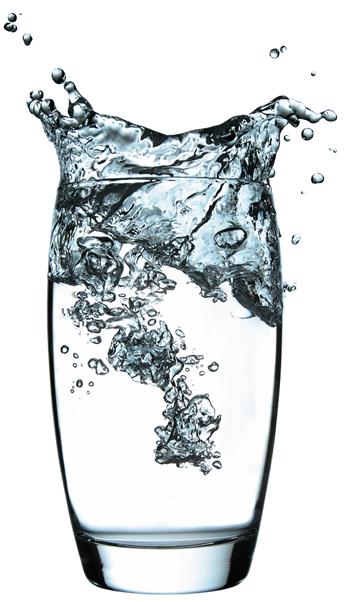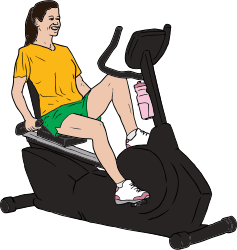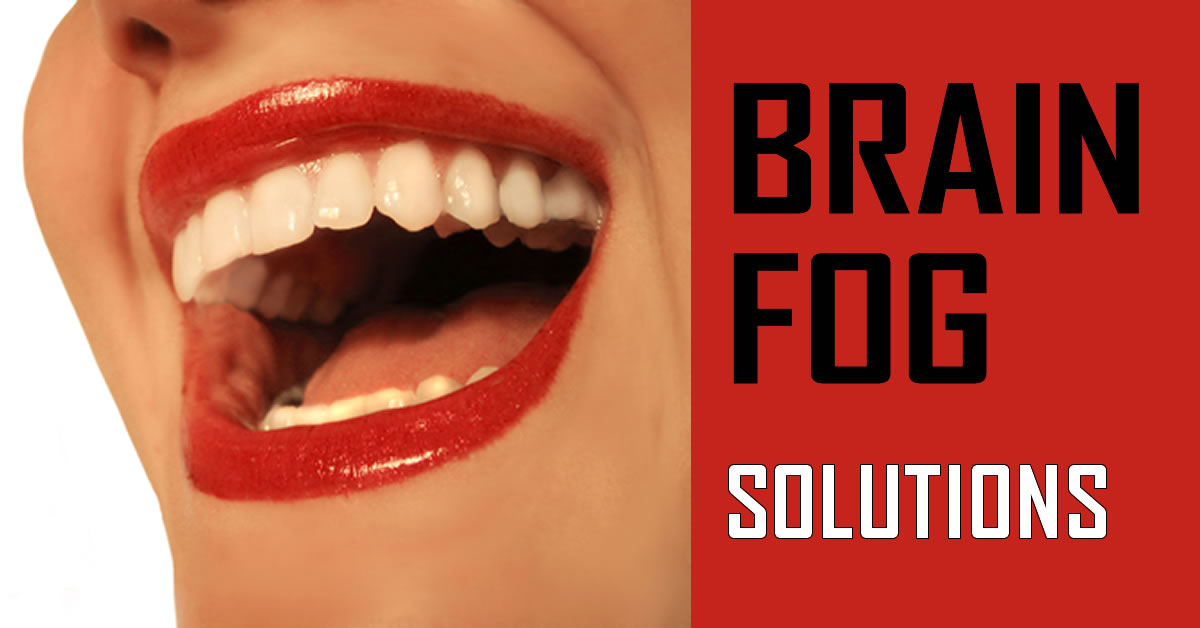Managing and Healing Brain Fog.
 Hydration: Staying well-hydrated is essential for brain health[i]. It is important to maintain proper hydration to maintain cognitive performance. Staying hydrated is crucial for overall health and cognitive function. To maintain proper hydration, aim to drink at least eight 8-ounce glasses of clean water daily, though individual needs may vary based on activity level, climate, and health status. Carry a reusable water bottle with you to encourage regular sipping throughout the day, and set reminders on your phone or use hydration-tracking apps. Incorporate water-rich foods into your diet, such as fruits (like watermelon and oranges) and vegetables (like cucumbers and celery)[ii]. Limit intake of dehydrating beverages like alcohol and caffeine. Listen to your body’s signals, such as thirst and the color of your urine, aiming for a pale yellow hue as an indicator of adequate hydration[iii]–[iv].
Hydration: Staying well-hydrated is essential for brain health[i]. It is important to maintain proper hydration to maintain cognitive performance. Staying hydrated is crucial for overall health and cognitive function. To maintain proper hydration, aim to drink at least eight 8-ounce glasses of clean water daily, though individual needs may vary based on activity level, climate, and health status. Carry a reusable water bottle with you to encourage regular sipping throughout the day, and set reminders on your phone or use hydration-tracking apps. Incorporate water-rich foods into your diet, such as fruits (like watermelon and oranges) and vegetables (like cucumbers and celery)[ii]. Limit intake of dehydrating beverages like alcohol and caffeine. Listen to your body’s signals, such as thirst and the color of your urine, aiming for a pale yellow hue as an indicator of adequate hydration[iii]–[iv].
 Avoiding Toxins: Minimizing exposure to environmental toxins and allergens can help reduce symptoms[v]–[vi]. The impact of environmental and occupational toxins on health, such as forever chemicals and heavy metals need to be minimize in order to reduce symptoms. However, due to humanity being constantly exposed to such toxins, natural detoxification protocols are important to consider. To avoid exposure to forever chemicals, air pollution, water pollution, and chemicals in food, adopt a comprehensive approach to daily habits and choices.
Avoiding Toxins: Minimizing exposure to environmental toxins and allergens can help reduce symptoms[v]–[vi]. The impact of environmental and occupational toxins on health, such as forever chemicals and heavy metals need to be minimize in order to reduce symptoms. However, due to humanity being constantly exposed to such toxins, natural detoxification protocols are important to consider. To avoid exposure to forever chemicals, air pollution, water pollution, and chemicals in food, adopt a comprehensive approach to daily habits and choices.
For forever chemicals, opt for PFAS-free products such as cookware, clothing, and furniture, and use a high-quality water filter certified to remove PFAS from drinking water. To combat air pollution, use air purifiers with HEPA filters indoors, avoid outdoor activities during peak pollution times, and maintain HVAC systems regularly. Indoors, incorporate air-purifying plants to help improve air quality. For water pollution, drink filtered water, properly dispose of medications and household chemicals, and support initiatives that protect water sources from industrial runoff. [vii].
When it comes to food, choose organic produce to minimize pesticide exposure, avoid processed foods with artificial additives, and thoroughly wash fruits and vegetables[viii]. By integrating these practices, you can significantly reduce your exposure to harmful chemicals and pollutants, enhancing your overall health and well-being.
 Healthy Diet: Consuming a balanced diet rich in essential nutrients, including omega-3 fatty acids, antioxidants, vitamins, and minerals, can support brain function[ix]. Maintaining a healthy diet involves balancing a variety of nutrient-rich foods and practicing mindful eating habits. Aim to include plenty of fruits and vegetables, whole grains, lean proteins, and healthy fats in your daily meals. Opt for fresh, whole foods over processed items, and minimize intake of added sugars, sodium, and unhealthy fats. Practice portion control and try to eat regular, balanced meals to maintain steady energy levels. Additionally, pay attention to your body’s hunger and fullness cues, and enjoy your food mindfully to foster a positive relationship with eating[x] “Comparison of weight loss among named diet programs in overweight and obese adults: A meta-analysis.”– Johnston, B. C., et al. (2014). [xi]
Healthy Diet: Consuming a balanced diet rich in essential nutrients, including omega-3 fatty acids, antioxidants, vitamins, and minerals, can support brain function[ix]. Maintaining a healthy diet involves balancing a variety of nutrient-rich foods and practicing mindful eating habits. Aim to include plenty of fruits and vegetables, whole grains, lean proteins, and healthy fats in your daily meals. Opt for fresh, whole foods over processed items, and minimize intake of added sugars, sodium, and unhealthy fats. Practice portion control and try to eat regular, balanced meals to maintain steady energy levels. Additionally, pay attention to your body’s hunger and fullness cues, and enjoy your food mindfully to foster a positive relationship with eating[x] “Comparison of weight loss among named diet programs in overweight and obese adults: A meta-analysis.”– Johnston, B. C., et al. (2014). [xi]
 Regular Exercise: Physical activity promotes blood flow to the brain and supports cognitive function[xii]. Regular exercise is essential for maintaining health and should be tailored to different age groups for optimal benefits. For children and adolescents, aim for at least 60 minutes of physical activity daily, including activities that strengthen muscles and bones such as running, jumping, and playing sports. Adults should aim for at least 150 minutes of moderate-intensity aerobic activity or 75 minutes of vigorous-intensity activity each week, combined with muscle-strengthening exercises on two or more days. For older adults, focus on activities that enhance balance, flexibility, and strength, such as walking, swimming, yoga, and resistance training, to maintain mobility and reduce the risk of falls. Regardless of age, choose activities you enjoy to stay motivated and consistent.
Regular Exercise: Physical activity promotes blood flow to the brain and supports cognitive function[xii]. Regular exercise is essential for maintaining health and should be tailored to different age groups for optimal benefits. For children and adolescents, aim for at least 60 minutes of physical activity daily, including activities that strengthen muscles and bones such as running, jumping, and playing sports. Adults should aim for at least 150 minutes of moderate-intensity aerobic activity or 75 minutes of vigorous-intensity activity each week, combined with muscle-strengthening exercises on two or more days. For older adults, focus on activities that enhance balance, flexibility, and strength, such as walking, swimming, yoga, and resistance training, to maintain mobility and reduce the risk of falls. Regardless of age, choose activities you enjoy to stay motivated and consistent.
 Adequate Sleep: Ensuring 7-9 hours of quality sleep per night is crucial for cognitive health[xiii]. To achieve adequate sleep and improve overall sleep quality, establish a consistent sleep schedule by going to bed and waking up at the same time every day, even on weekends, to support your circadian rhythms. Create a relaxing bedtime routine that includes activities such as reading, taking a warm bath, or practicing meditation to signal your body that it’s time to wind down. Ensure your sleep environment is conducive to rest by keeping your bedroom cool, dark, and quiet, and investing in a comfortable mattress and pillows. Limit exposure to screens and bright lights at least an hour before bed, as blue light can interfere with the production of melatonin, the hormone that regulates sleep.
Adequate Sleep: Ensuring 7-9 hours of quality sleep per night is crucial for cognitive health[xiii]. To achieve adequate sleep and improve overall sleep quality, establish a consistent sleep schedule by going to bed and waking up at the same time every day, even on weekends, to support your circadian rhythms. Create a relaxing bedtime routine that includes activities such as reading, taking a warm bath, or practicing meditation to signal your body that it’s time to wind down. Ensure your sleep environment is conducive to rest by keeping your bedroom cool, dark, and quiet, and investing in a comfortable mattress and pillows. Limit exposure to screens and bright lights at least an hour before bed, as blue light can interfere with the production of melatonin, the hormone that regulates sleep.
To enhance your ability to fall into REM sleep and combat insomnia, avoid heavy meals, caffeine, and alcohol close to bedtime, as they can disrupt your sleep cycles. Engage in regular physical activity, but try to complete workouts at least a few hours before bedtime to avoid overstimulation. Manage stress through relaxation techniques such as deep breathing, progressive muscle relaxation, or journaling. If insomnia persists, consider seeking guidance from a healthcare professional who can help identify underlying causes and recommend appropriate treatments, such as cognitive-behavioral therapy for insomnia (CBT-I).
 Stress Management: Techniques such as meditation, mindfulness, and yoga can help reduce stress levels[xiv]. Reducing stress involves adopting a holistic approach that incorporates physical, mental, and emotional strategies[xv]. Regular physical activity, such as walking, yoga, or swimming, can significantly reduce stress levels by releasing endorphins and improving mood[xvi]. Mindfulness and meditation practices[xvii], such as deep breathing exercises[xviii], progressive muscle relaxation, or guided imagery, can help calm the mind and reduce anxiety. Additionally, maintaining a healthy diet rich in fruits, vegetables, whole grains, and lean proteins[xix] can provide the necessary nutrients to support your body’s stress response.
Stress Management: Techniques such as meditation, mindfulness, and yoga can help reduce stress levels[xiv]. Reducing stress involves adopting a holistic approach that incorporates physical, mental, and emotional strategies[xv]. Regular physical activity, such as walking, yoga, or swimming, can significantly reduce stress levels by releasing endorphins and improving mood[xvi]. Mindfulness and meditation practices[xvii], such as deep breathing exercises[xviii], progressive muscle relaxation, or guided imagery, can help calm the mind and reduce anxiety. Additionally, maintaining a healthy diet rich in fruits, vegetables, whole grains, and lean proteins[xix] can provide the necessary nutrients to support your body’s stress response.
Cultivating a strong social support network by staying connected with friends and family can also provide emotional support and a sense of belonging, which are crucial for stress management. Prioritizing time management and setting realistic goals can help reduce the feeling of being overwhelmed. If stress becomes unmanageable, consider seeking professional help from a counselor or therapist who can provide personalized strategies and support. These approaches collectively contribute to a more balanced and resilient way of handling stress.
 Mental Stimulation: Engaging in activities that challenge the brain, such as puzzles, reading, and learning new skills, can help maintain cognitive function. Engaging in regular mental stimulation is essential for maintaining cognitive health and preventing cognitive decline. Incorporate activities that challenge your brain, such as puzzles, reading, learning a new language, or playing musical instruments, which help enhance memory, processing speed, and overall cognitive function[xx]. Social interactions and participating in group activities like book clubs or discussion groups can also stimulate mental engagement and improve cognitive resilience. Incorporating these practices into your daily routine can foster lifelong brain health and mitigate the effects of aging on cognitive abilities[xxi]–[xxii].
Mental Stimulation: Engaging in activities that challenge the brain, such as puzzles, reading, and learning new skills, can help maintain cognitive function. Engaging in regular mental stimulation is essential for maintaining cognitive health and preventing cognitive decline. Incorporate activities that challenge your brain, such as puzzles, reading, learning a new language, or playing musical instruments, which help enhance memory, processing speed, and overall cognitive function[xx]. Social interactions and participating in group activities like book clubs or discussion groups can also stimulate mental engagement and improve cognitive resilience. Incorporating these practices into your daily routine can foster lifelong brain health and mitigate the effects of aging on cognitive abilities[xxi]–[xxii].
Brain fog is a common but often overlooked issue that can affect anyone. Recognizing the symptoms and understanding the potential causes are the first steps towards effective management. If brain fog persists, it is essential to seek medical advice to identify any underlying health conditions and develop an appropriate treatment plan. By making lifestyle changes and addressing medical issues, individuals can often significantly improve their cognitive function and overall well-being.
BACK: What is Brain Fog, the Symptoms, Dangers and Solutions
<<<BACK
Citations
[i] Benton, D., & Burgess, N. (2009). “The effect of the consumption of water on the memory and attention of children.” Appetite, 53(1), 143-146. doi:10.1016/j.appet.2009.05.006.
[ii] Institute of Medicine (US) Panel on Dietary Reference Intakes for Electrolytes and Water. “Dietary Reference Intakes for Water, Potassium, Sodium, Chloride, and Sulfate.” National Academies Press (US), 2005.
[iii] This report provides guidelines on water intake recommendations, emphasizing the importance of drinking adequate water throughout the day. Popkin, B. M., D’Anci, K. E., & Rosenberg, I. H. (2010). “Water, hydration, and health.” Nutrition Reviews, 68(8), 439-458. doi:10.1111/j.1753-4887.2010.00304.x.
[iv] Armstrong, L. E. (2012). “Challenges of linking chronic dehydration and fluid consumption to health outcomes.” Nutrition Reviews, 70(suppl_2), S121-S127. doi:10.1111/j.1753-4887.2012.00528.x.
[v] Richeldi, L., & Rubin, A. S. (2006). “Environmental and occupational risk factors for idiopathic pulmonary fibrosis and sarcoidosis.” Current Opinion in Pulmonary Medicine, 12(5), 438-444. doi:10.1097/01.mcp.0000245707.15593.45.
[vi] Bellinger, D. C. (2013). “Prenatal exposures to environmental chemicals and children’s neurodevelopment: An update.” Saf Health Work, 4(1), 1-11. doi:10.5491/SHAW.2013.4.1.1.
[vii] Landrigan, P. J., Fuller, R., Acosta, N. J. R., Adeyi, O., Arnold, R., Baldé, A. B., … & Zhong, M. (2018). “The Lancet Commission on pollution and health.” The Lancet, 391(10119), 462-512. doi:10.1016/S0140-6736(17)32345-0.
[viii] EFSA Panel on Contaminants in the Food Chain (CONTAM) (2018). “Risk to human health related to the presence of perfluoroalkyl substances in food.” EFSA Journal, 16(12), 5194. doi:10.2903/j.efsa.2018.5194.
[ix] Gómez-Pinilla, F. (2008). “Brain foods: the effects of nutrients on brain function.” Nature Reviews Neuroscience, 9(7), 568-578. doi:10.1038/nrn2421.
[x] Harvard T.H. Chan School of Public Health (2020). “The Nutrition Source: Healthy Eating Plate.” https://nutritionsource.hsph.harvard.edu/healthy-eating-plate/
[xi] Johnston, B. C., et al. (2014). “Comparison of weight loss among named diet programs in overweight and obese adults: A meta-analysis.” JAMA, 312(9), 923-933. doi:10.1001/jama.2014.10397.
[xii] Hillman, C. H., Erickson, K. I., & Kramer, A. F. (2008). “Be smart, exercise your heart: exercise effects on brain and cognition.” Nature Reviews Neuroscience, 9(1), 58-65. doi:10.1038/nrn2298.
[xiii] Walker, M. P. (2009). “The role of sleep in cognition and emotion.” Annals of the New York Academy of Sciences, 1156(1), 168-197. doi:10.1111/j.1749-6632.2009.04416.x.
[xiv] McEwen, B. S. (2007). “Physiology and neurobiology of stress and adaptation: Central role of the brain.” Physiological Reviews, 87(3), 873-904. doi:10.1152/physrev.00041.2006.
[xv] “Stress management: Know your triggers.” Available at: https://www.mayoclinic.org/healthy-lifestyle/stress-management/in-depth/stress-management/art-20044151
[xvi] Exercise and stress: Get moving to manage stress.” Available at: https://www.mayoclinic.org/healthy-lifestyle/stress-management/in-depth/exercise-and-stress/art-20044469
[xvii] “Mindfulness meditation: A research-proven way to reduce stress.” Available at: https://www.apa.org/topics/mindfulness/meditation
[xviii] Relaxation techniques: Breath control helps quell errant stress response.” Available at: https://www.health.harvard.edu/mind-and-mood/relaxation-techniques-breath-control-helps-quell-errant-stress-response
[xix] “The power of social connectedness.” Available at: https://newsinhealth.nih.gov/2019/09/power-social-connectedness.
[xx] Wilson, R. S., et al. (2002). “Participation in cognitively stimulating activities and risk of incident Alzheimer disease.” JAMA, 287(6), 742-748. doi:10.1001/jama.287.6.742.
[xxi] Park, D. C., & Reuter-Lorenz, P. (2009). “The adaptive brain: aging and neurocognitive scaffolding.” Annual Review of Psychology, 60, 173-196. doi:10.1146/annurev.psych.59.103006.093656.
[xxii] Ball, K., et al. (2002). “Effects of cognitive training interventions with older adults: A randomized controlled trial.” JAMA, 288(18), 2271-2281. doi:10.1001/jama.288.18.2271.

